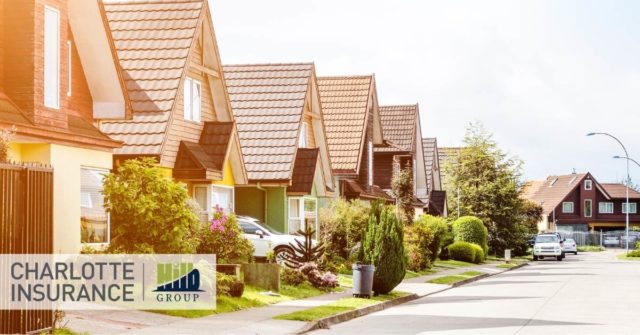Owning a home in a homeowners association (HOA) often comes with plenty of benefits. The streets are usually cleaner, the neighborhood is safer, and the community is a place you enjoy living.
Living in a gated or deed-restricted community might sound idyllic, but what impact will it have on your homeowners insurance? Here’s what you need to know.
Increased Safety Features = Decreased Risk
Homeowners associations do a lot of things for the communities they manage and oversee, including providing a strong perception (and reality) of safety. From security guards and neighborhood watch programs to locked gates, living in an HOA may lower your risk of theft. Even in communities without built-in security measures, these neighborhoods tend to be safer simply from the perception of additional security and watchful neighbors.
This is great for your homeowners insurance as it can lower the claims filed due to theft in the neighborhood. Many home insurance providers will offer lower premium rates or a discount because you live in a HOA. It’s worth talking to an independent insurance agency like ours to see what discounts you may be eligible for.
The HOA Insures the Community But Not Your Home
Your HOA will have their own insurance policy for the association and communal areas. You still have to pay your fee each month to help pay for those amenities, but if something goes wrong, the HOA insurance coverage takes care of it. An HOA insurance policy covers many things, including the board, the HOA’s liability, and the property.
Communal areas covered by the HOA policy typically include:
- Private roads and sidewalks
- Bike paths and walking trails
- Community rooms and clubhouses
- Playgrounds and fitness rooms
- Security gates
- Swimming pools
- And anything else managed by the HOA available for homeowner use
In rare instances, the HOA insurance may even cover a homeowner’s front yard. This information should be available on your HOA documents or from your HOA board of directors. If this is the case, talk to your insurance agent to find out how this might impact your homeowners insurance policy.
Condo and Townhomes
Condo associations (COAs) function very similarly to HOAs but in terms of homeowners insurance, there’s often one key difference. A COA insurance policy will cover some portion of the building the condo or townhome is part of. Every association policy is different, and it’s important to read through the documentation provided by the association.
Some insurance policies cover the roof and the exterior walls. Other policies cover up to the interior walls. And in rare cases, the condo association policy will cover aspects of the interior of a condo or townhouse. No matter what kind of coverage the COA purchases, it affects the homeowners insurance you buy — often by making it less expensive than a single-family home policy. Why? Because the COA insurance assumes some responsibility for risk and damage to some part of the building, even if it’s just the roof and outside wall.
Buying home insurance when you live in a HOA isn’t complicated and shouldn’t cost you more. In fact, it may cost you less. If you have questions about your homeowners policy, contact Charlotte Insurance today. We can answer your questions and provide free estimates.

